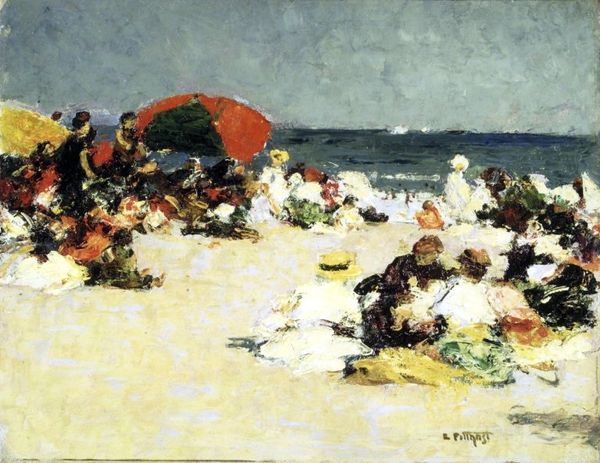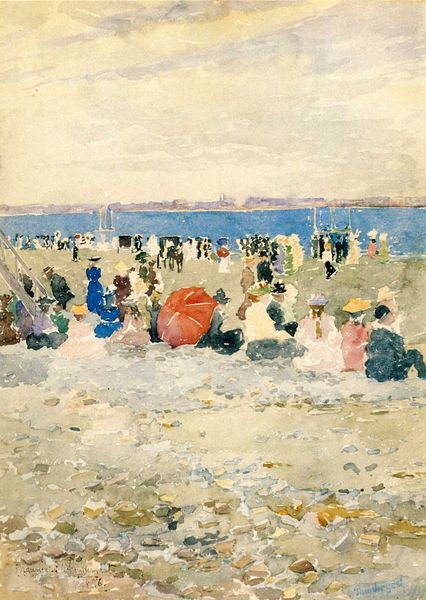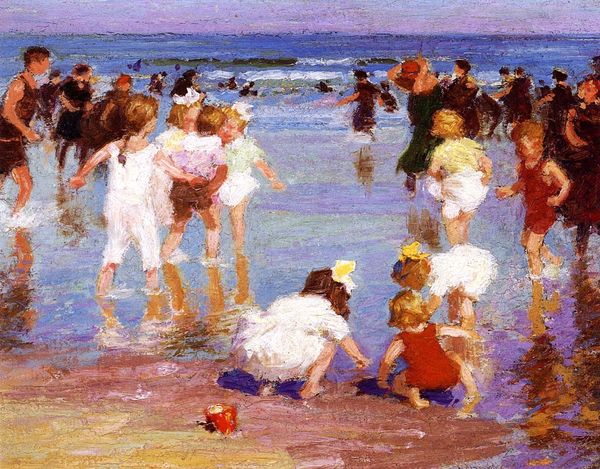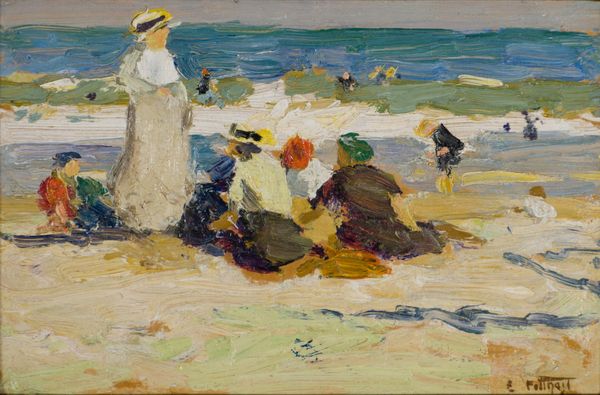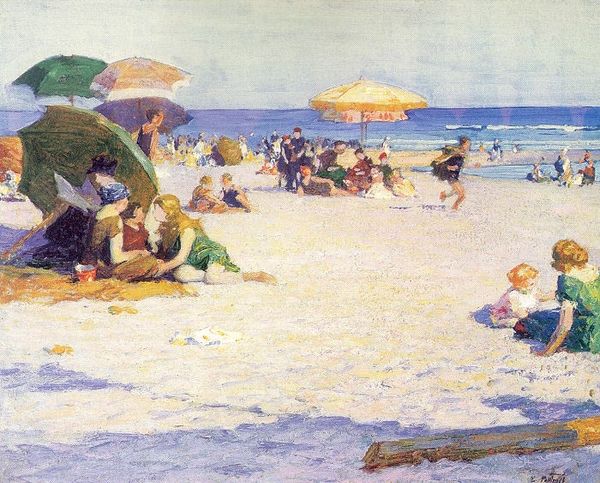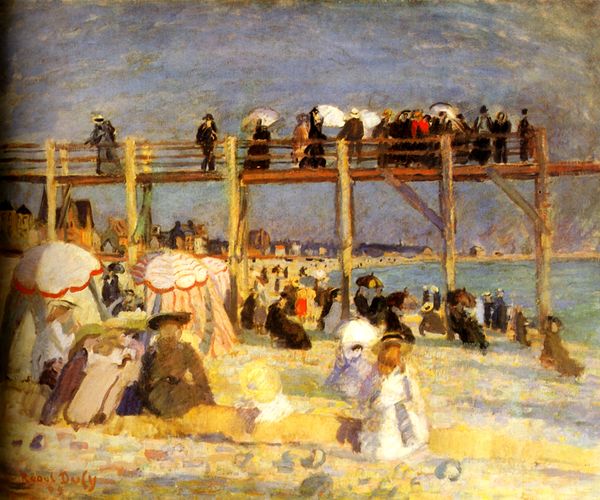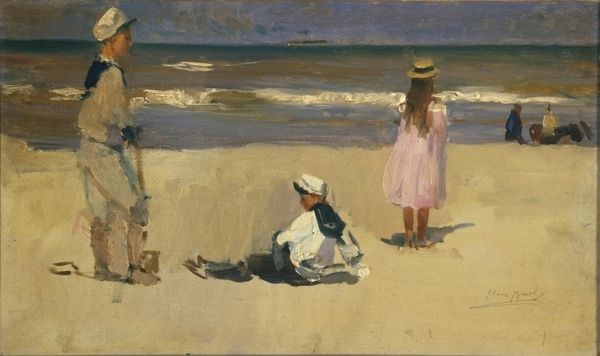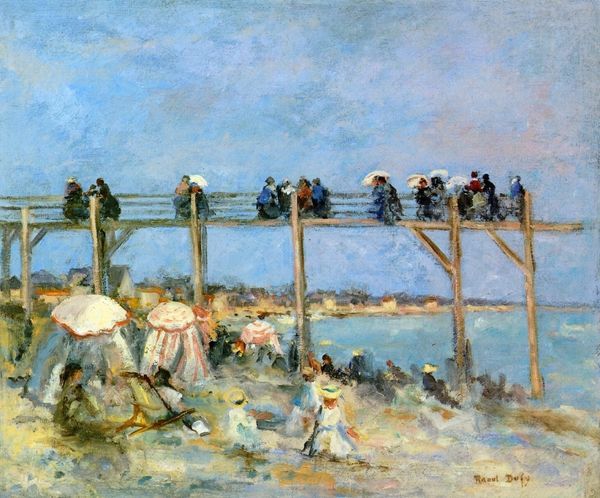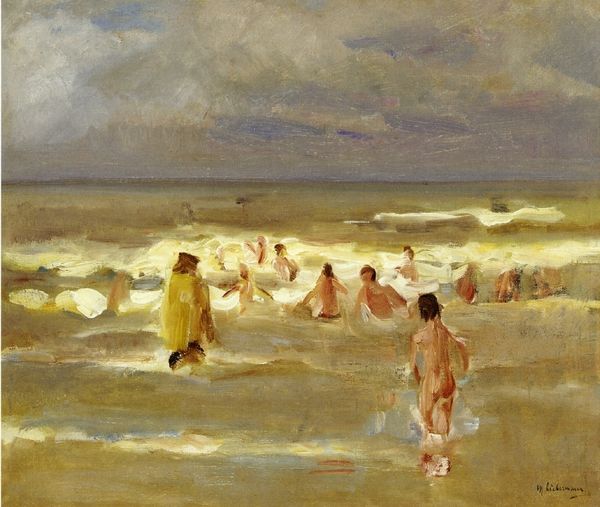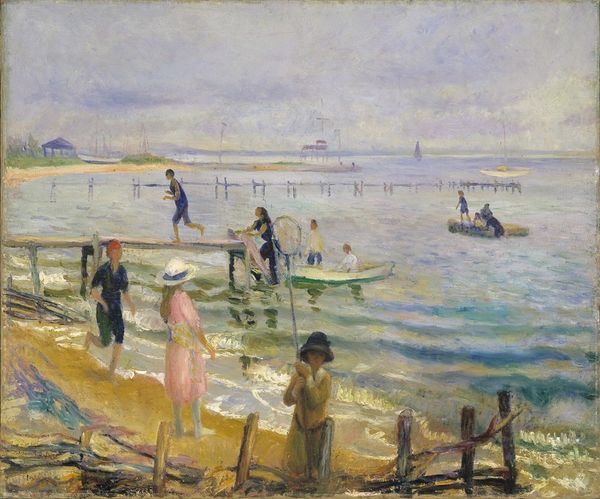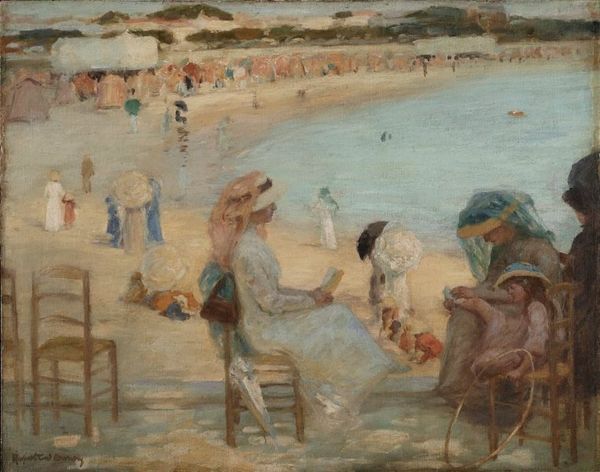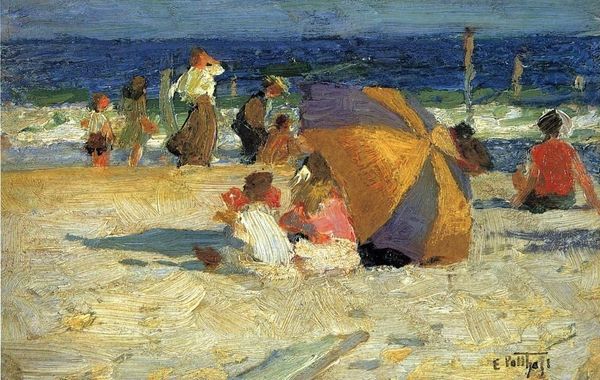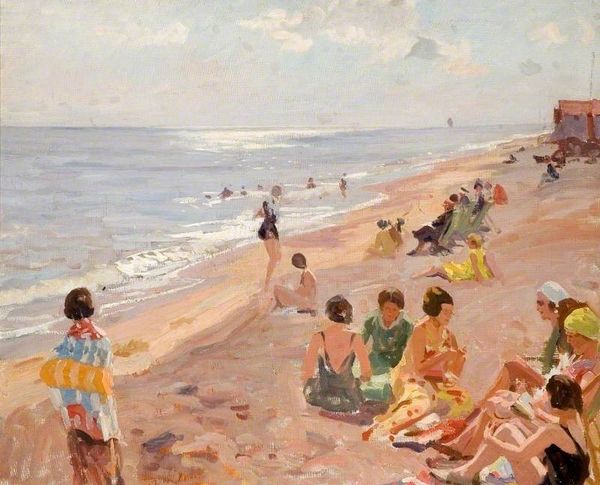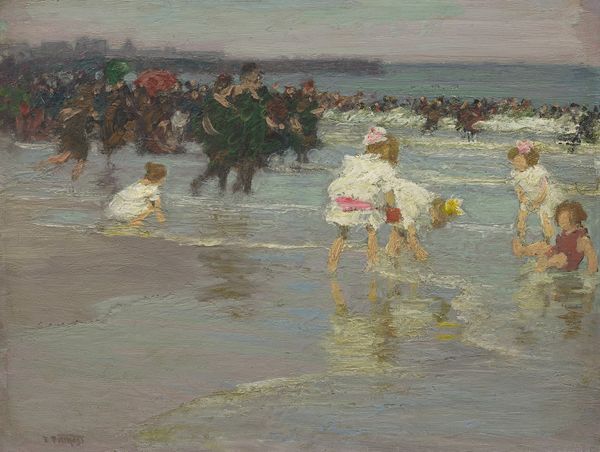
plein-air, oil-paint
#
portrait
#
impressionism
#
plein-air
#
oil-paint
#
landscape
#
figuration
#
oil painting
#
painting painterly
#
genre-painting
Copyright: Public domain
Editor: This is "In Dog Days," an oil on canvas painting by Edward Henry Potthast. It captures a busy beach scene. What really strikes me is the visible brushwork, especially in the depiction of the water and sand; you can almost feel the textures. What do you see in this piece? Curator: The roughness of the paint application interests me. The visible labor and the apparent speed with which Potthast captured this scene point to a democratizing shift in art production. It moves away from polished, academic portrayals towards a celebration of the everyday, accessible through inexpensive, readily available materials. Think about how the masses now have access to affordable paints and the democratization of leisure, shaping both the subject and the means of producing this kind of art. Editor: So you are saying the very materiality of the paint and the “roughness” connect to the social changes? It wasn’t just about representing a scene, but the act of painting itself was evolving with society? Curator: Exactly. Consider the plein-air technique. Artists venturing outside with their canvases and paint boxes wasn't just about depicting landscapes accurately; it reflected a changing relationship with work, leisure, and even consumption. Mass tourism was on the rise, creating new markets for such artworks, didn’t it? Editor: I never really considered that the physical materials could tell us so much about the culture and even the economy. Thanks, that’s really shifted how I look at it! Curator: Absolutely. Looking at art through its material production reveals much more than artistic intention alone. The piece now evokes a wider understanding of 19th-century social change!
Comments
No comments
Be the first to comment and join the conversation on the ultimate creative platform.
